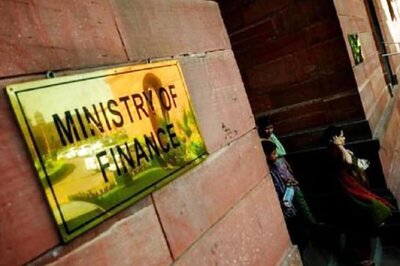
views
Punjab Chief Minister Amarinder Singh on Friday dubbed the ordinance on allowing farmers to sell outside mandis as "violative" of the federal structure and said this would damage the state as the ordinance is being forced on it.
The chief minister also warned that it could pave the way for disbanding the minimum support price regime as well as the foodgrain procurement regime, triggering unrest among the state's farmers.
"It is a violative of the federal structure," Singh said while replying to a question on the Farming Produce Trade and Commerce (Promotion and Facilitation) Ordinance, 2020 passed by the Centre.
"It is being forced on Punjab and it will damage our state," he added during a video conference with the media here.
Singh said that the Centre should have consulted the states, including Punjab, before coming out with this ordinance.
The chief minister said Punjab will fight any steps on part of the central government to "weaken" the federal structure of the country through such direct and detrimental interference in the well-established agriculture produce marketing system of the state.
The Union cabinet on Wednesday had approved the Farming Produce Trade and Commerce (Promotion and Facilitation) Ordinance, 2020 to allow barrier-free trade in agriculture produce outside the notified APMC (Agriculture Produce Marketing Committees) mandis.
It proposes to bar state governments from imposing taxes on sale and purchase of farm produce undertaken outside the mandis and give farmers the freedom to sell their produce at remunerative prices.
Such a measure shall severely and adversely impact the food security of the nation, which Punjab's hard working and selfless farmers have sustained ever since the green revolution, he said.
Pointing out that the federal structure of India envisages well-defined roles and responsibilities for the Centre and the states, the CM said that under the constitutional framework, agriculture is a state subject, and the Union government has no powers to make any legislation to deal with the dynamics of agricultural production, marketing and processing.
These are state matters which individual states are best placed to handle and manage, he said.
The chief minister said that the Centre's habit of taking sudden decisions and forcing them on states, without taking their views into account, was "violative" of the very federal framework of the state.
Singh said that such actions of the Union government during the COVID pandemic crisis can have serious economic, social and law and order consequences.
The farmers will not gain but actually suffer at the hands of traders due to the legislative change, he said.
He further pointed out that the Centre had not even created any dispute redressal mechanism, and not consulted the state governments, which would be left to handle the consequences of this hasty action.
The chief minister said that far from ushering in an era of much-needed reforms in agriculture, the announcements are in fact a clear and concerted design to "undermine" the systems and processes that are holding the sector together.
Citing the well-oiled agriculture produce marketing system in Punjab, Singh said it had served the state well, standing the test of time for 60 years. "Why are you demolishing it," he asked.
He further said it will also hit mandi boards financially.
The state has in place a well-developed state-of-the-art infrastructure, both for open marketing of produce and its seamless transportation from the farm gates to mandis and godowns.
The chief minister said the state government has already made necessary amendments to the Punjab Agricultural Produce Markets Act, 1961 to provide for setting up of regulated mandis even in the private sector for specific produce.
As such, there is no further need of a central law to interfere with the already well established marketing system in Punjab, asserted Singh.




















Comments
0 comment